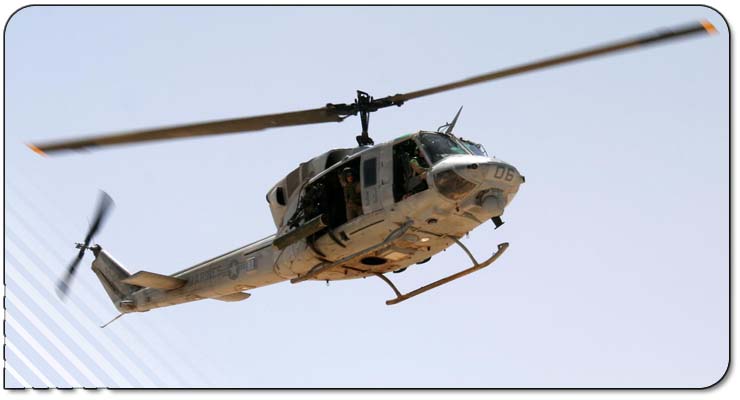Description:
The UH-1N is a
light-lift Air Force utility helicopter used for support of Department
of Defense contingency plans. The helicopter has a number of uses. Its
primary mission includes airlift of emergency security and disaster
response forces, medical evacuation, security surveillance of off-base
movements of nuclear weapons convoys and test range areas during launch
conditions. It is also used for space shuttle landing support, priority
maintenance dispatch support, and search and rescue operations. Other
uses include airlift of missile support personnel, airborne cable
inspections and distinguished visitor transport.
Features:
The UH-1N is capable of flight in instrument and nighttime conditions.
The crew complement is normally two (pilot and copilot), but may be
flown single-pilot depending on weather and mission requirements. The
crew complement for hoist, over water and navigational operations is
three, adding a flight engineer. When configured for passengers, the
UH-1N can seat up to 13 people, but actual passenger loads are
dependent on fuel loads and atmospheric conditions. The medical
evacuation configuration can accommodate up to six litters. Without
seats or litters, the cabin can carry bulky, oversized cargo. Access to
the cabin is through two full-sized sliding doors, one on each side of
the aircraft.
Background:
The UH-1N entered the Air Force inventory in 1970 to provide search and
rescue capabilities. The missions expanded to include missile,
distinguished visitor and survival school support. Some of the UH-1Fs
supporting the missile wings were eventually replaced by the UH-1N due
to the greater safety and capability offered by the twin engine.
Manufactured by Bell Helicopter/Textron Inc., the UH-1N is the military
version of the Bell 212. |
|

